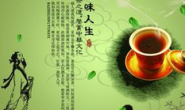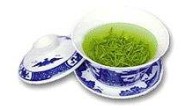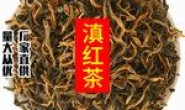The Song Dynasty was a Chinese dynasty that lasted from 960 to 1279 AD. It was a period of significant cultural, economic, and technological advancements in China. The dynasty is divided into two main periods: the Northern Song (960-1127) and the Southern Song (1127-1279), separated by the upheaval caused by the invasion of the Jurchen people from the north.
Key features of the Song Dynasty include:
Economic Prosperity: The Song Dynasty saw significant economic growth, with advancements in agriculture, industry, and commerce. The use of paper money became more widespread, and there was an increase in urbanization and trade.
Cultural Achievements: The Song Dynasty was a time of great cultural flourishing. Literature, poetry, philosophy, and the arts thrived. Neo-Confucianism emerged as a dominant intellectual force, combining Confucianism with elements of Buddhism and Daoism.
Technological Innovations: The Song period witnessed remarkable technological advancements, including the invention of gunpowder, the compass, movable-type printing, and improved agricultural tools. These innovations had a profound impact on Chinese society and beyond.
Art and Poetry: The Song Dynasty is known for its exquisite landscape paintings and delicate ceramics. Poets like Su Shi and Li Qingzhao made significant contributions to Chinese literature during this time.
Military Challenges: The Northern Song faced military challenges from various nomadic groups, including the Khitan and the Jurchen. The Jurchen eventually invaded and captured the capital, leading to the establishment of the Southern Song.
Political Changes: The political structure of the Song Dynasty underwent reforms, with an emphasis on a centralized bureaucratic system. However, the dynasty faced internal strife and external threats, leading to its eventual downfall at the hands of the Mongols, who established the Yuan Dynasty in 1279.
在宋代,社会出现了许多变革和创新。
科技与工艺: 宋代在科技方面取得了显著的进步。活字印刷术的发明使书籍更加易于生产,这对文化传播产生了深远的影响。火药的发现也在一定程度上改变了战争的面貌。
官方文化政策: 宋代推崇儒家思想,尤其是理学。理学强调个体修身齐家治国平天下的思想,对中国后来的封建社会产生了深远的影响。
女性地位: 在宋代,女性的社会地位相对较高。一些女性通过文学、绘画等途径成为社会名流,例如著名的女诗人李清照。
商业与城市发展: 宋代的商业繁荣带动了城市的发展。大城市如汴京成为国际贸易的中心。水运的发展促进了经济交流。
北方与南方的差异: 北宋和南宋时期有很大的差异。南宋时期,由于北方失地,南方成为政治和文化的中心。临安是南宋的都城,也是当时世界上最大的城市之一。
外交交往: 宋代与周边国家保持了一定的外交关系,与西夏、辽、金等国有过一些战争与交往。
灾害与动荡: 宋代也面临了一些自然灾害,如黄河的改道,导致频繁的洪水。这些灾害对社会产生了重大影响。



